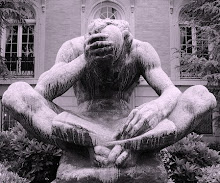An editorial from the Washington Post whose sentiment struck me as quite beautiful:
ON AND AROUND Dec. 25, 1914, many of the men fighting in the recently inaugurated war in Europe stopped for a short time to observe what came to be known as the "Christmas Truce." They sang carols back and forth, then came out of the trenches to meet, play a bit of soccer, share some food. "Just before dinner I had the pleasure of shaking hands with several Germans," a British soldier wrote in a letter home. "[A] party of them came 1/2 way over to us so several of us went out to them. I exchanged one of my balaclavas for a hat. I've also got a button off one of their tunics. We also exchanged smokes etc. and had a decent chat. . . . We can hardly believe that we've been firing at them for the last week or two -- it all seems so strange."
Normality was not long in returning. The Great War resumed in earnest, further spontaneous truces were discouraged in the interest of good military order, and by Christmas Day 1918 nearly 10 million men had died at war, along with some 10 million civilians. And of course it was still early in the century, the 20th since the birth of Jesus of Nazareth, an event whose significance had been proclaimed in the Book of Luke in words that resonated among people of every faith and following: "Peace on earth, goodwill toward men." Literally uncounted millions more were yet to perish in the wars, pogroms, purges, ethnic relocations and other acts of organized violence that culminated in the Second World War, which was in turn followed by a long "peace" in which uncounted millions more were killed.
The odd thing is that so much of the horror has been so mindless -- not part of a struggle for food, land or dominance or even of long-simmering discord between one group of people and another, but rather a puzzling eruption of hatred toward entire categories of people suddenly found, for no good reason, to be threatening, deviant, dangerously different -- the cause of all problems real and imagined.
Some students of the subject voice cautious optimism that the impulse to such violence is gradually declining or is being reined in. But then, of course, they thought that a hundred years ago, too. There was confidence then that the forces of education and technological and economic advancement would move civilization forward into an era of prosperity and understanding in which peoples would no longer wage war on one another. Perhaps by now we comprehend that while there is some truth in this, what is far more important than all the engines of progress is simply to understand and truly feel what it was that moved the hearts of the men who put down their guns and walked across a blasted field toward their enemies on Christmas Day 1914.
24 December 2007
Subscribe to:
Posts (Atom)
